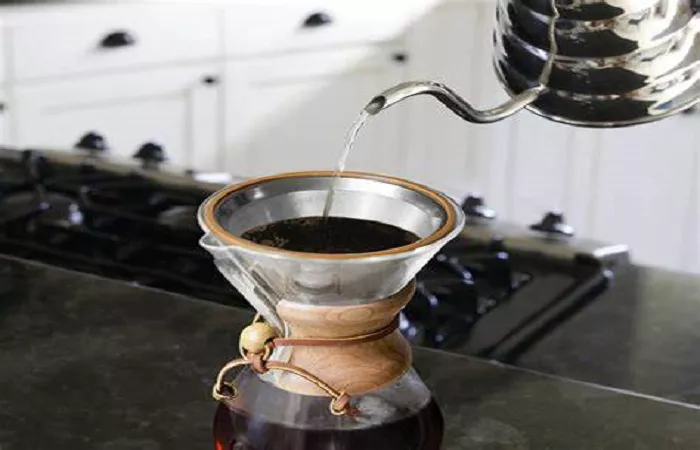Cold brew coffee has gained immense popularity in recent years, and Arabica beans are often the top choice for this brewing method. Unlike traditional hot brewing, cold brew involves steeping coffee grounds in cold or room-temperature water for an extended period, usually 12 to 24 hours. The result is a smooth, low-acidity beverage with a naturally sweet and rich flavor profile. Arabica beans, known for their superior quality and complex flavors, enhance the cold brew experience with their delicate aromas and balanced taste.
Arabica coffee (Coffea arabica) is the most widely consumed coffee species globally, prized for its mild and nuanced flavors. When used in cold brew, these beans produce a drink that is not only delicious but also gentler on the stomach compared to hot-brewed coffee. The slow extraction process minimizes bitterness and acidity, making cold brew Arabica coffee an excellent option for those with sensitive digestion.
The Science Behind Cold Brew Extraction
The process of cold brewing differs significantly from traditional hot coffee preparation. Hot water extracts coffee compounds quickly, pulling out oils, acids, and caffeine in a short time. In contrast, cold water extraction is a gradual process that selectively draws out flavors while leaving behind many of the harsher elements.
One key factor is solubility. Caffeine, acids, and sugars dissolve at different rates depending on temperature. Hot water (around 195–205°F) rapidly dissolves chlorogenic acids, which contribute to bitterness and acidity. Cold water (around 68–72°F), however, extracts these compounds more slowly, resulting in a smoother taste. Studies have shown that cold brew coffee contains up to 67% less acidity than hot-brewed coffee, making it easier on the stomach and teeth.
Another important aspect is the role of time. Because cold water is less efficient at extraction, the prolonged steeping period ensures that enough flavor and caffeine are released. Interestingly, despite the long brewing time, cold brew typically has slightly less caffeine than hot coffee when compared ounce for ounce. However, because it is often served concentrated or over ice, the perceived strength can be higher.
Health Benefits of Cold Brew Arabica Coffee
Cold brew Arabica coffee offers several health advantages, many of which stem from its lower acidity and unique chemical profile. For individuals who experience acid reflux or gastrointestinal discomfort with regular coffee, cold brew can be a game-changer. The reduced acidity minimizes irritation to the stomach lining, allowing coffee lovers to enjoy their favorite beverage without discomfort.
Additionally, Arabica beans contain beneficial antioxidants, such as polyphenols and hydroxycinnamic acids, which have been linked to reduced inflammation and improved heart health. Cold brewing preserves many of these compounds, providing a healthful drink that supports overall well-being. Some research suggests that moderate coffee consumption may lower the risk of type 2 diabetes, Parkinson’s disease, and liver conditions, though individual responses can vary.
Caffeine, while present in slightly lower amounts in cold brew, still provides its well-known benefits, including enhanced alertness, improved cognitive function, and even a temporary metabolic boost. Because cold brew is often smoother and less bitter, some people find it easier to consume in larger quantities without added sugars or creamers, making it a healthier choice for those watching their calorie intake.
Flavor Profile: Why Arabica Excels in Cold Brew
Arabica beans are celebrated for their superior flavor complexity, featuring notes of fruit, chocolate, nuts, and floral undertones. When brewed cold, these flavors become even more pronounced, as the slow extraction process highlights the bean’s natural sweetness while muting harsh or bitter notes.
The lower acidity of cold brew allows subtle flavors to shine. For example, a high-quality Ethiopian Arabica might exhibit bright berry and citrus notes when hot-brewed, but in cold brew, those fruity tones become smoother and more balanced. Similarly, a Colombian Arabica might develop deeper caramel and nutty characteristics when steeped cold.
Roast level also plays a crucial role. While dark roasts are popular for cold brew due to their boldness, medium roasts often work best with Arabica beans, preserving their delicate flavors without overpowering them. Lighter roasts, though less common in cold brew, can produce surprisingly vibrant and tea-like results when brewed correctly.
Brewing the Perfect Cold Brew Arabica Coffee
Making cold brew at home is simple, but attention to detail ensures the best results. Start with freshly ground Arabica beans—a coarse grind is ideal to prevent over-extraction and sediment. The general ratio is one part coffee to four parts water, though this can be adjusted based on preference. Combine the grounds and water in a large jar or French press, stir gently, and let it steep at room temperature for 12 to 24 hours.
After steeping, strain the mixture through a fine-mesh sieve or cheesecloth to remove all grounds. The resulting concentrate can be diluted with water or milk and served over ice. Many enthusiasts prefer storing the concentrate in the refrigerator, where it can last up to two weeks, allowing for quick and convenient servings.
Experimentation is key. Adjusting the brew time, grind size, or coffee-to-water ratio can fine-tune the flavor to personal taste. Some may prefer a stronger, more intense brew, while others might enjoy a lighter, more refreshing version.
Conclusion
Cold brew Arabica coffee is more than just a trendy beverage—it’s a refined and health-conscious way to enjoy coffee. The slow extraction process enhances the natural sweetness and complexity of Arabica beans while reducing acidity and bitterness. Whether for its smooth taste, digestive benefits, or antioxidant properties, cold brew Arabica coffee stands out as a superior choice for coffee enthusiasts.
As more people discover its advantages, cold brew continues to evolve, with specialty cafes and home brewers experimenting with bean origins, roast profiles, and infusion techniques. For anyone seeking a delicious, stomach-friendly, and refreshing coffee experience, cold brew Arabica coffee is undoubtedly worth exploring.
Related topics:
What Are the Secrets to Making Sweet Cold Brew at Home?
Starbucks Black Unsweetened Cold Brew


